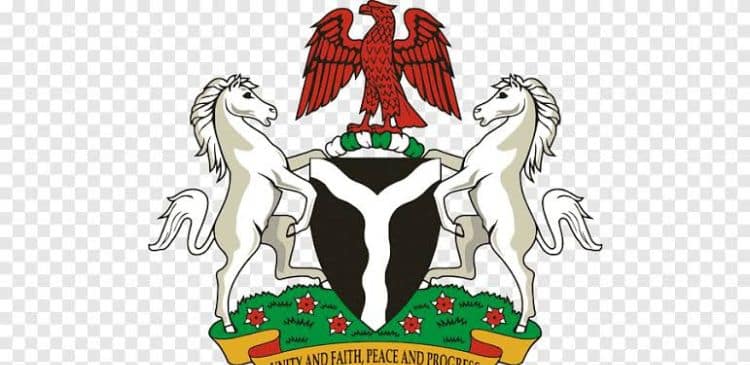The British flag, the Union Jack was lowered at exactly 12 midnight on October 1, 1960, signifying the birth of a new nation, Nigeria.
There were “Great Expectations” that the most populous black country in the world will in no time take its pride of place in the League of Nations. The expectations were justified considering Nigeria’s vast human and natural resources.
However, 62 years on, those expectations seem to have remained mere hope – a dream that sooner rather than later, the giant of Africa will find the strength to conquer its own fears- the most frightening of which have been the fault lines of ethnicity and religion that have kept Nigeria down for more than six decades.
In the twin delicate fault lines lies the story of Nigeria’s chequered “Journey into Nationhood”.
Yet there were ominous signs even long before Independence that the country was going to be a difficult experiment at trying to group peoples of mutually unintelligible languages and culture in the same room.
The sharp differences must have been quite visible to late sage and Premier of old Western region, Obafemi Awolowo when in his book, “Path to Nigeria Freedom” in 1947 said that “Nigeria is not a nation, it is a mere geographical expression”.
He went further to say that “there are no “Nigerians” in the same sense as there are “English”, “Welsh” or “French”.
But it was not only Awolowo that called attention to the lack of cohesion and the ethnic mistrust that existed at that time.
Nigeria’s first and only Prime Minister, Abubakar Tafawa Balewa in the same 1947 shared similar sentiments with Awolowo when he said that “since the amalgamation of Southern and Northern provinces in 1914, Nigeria has existed as one country on paper”. It is still far from being united. He concluded by saying that “Nigeria’s unity is only a British intention for the country”.
It was with such doubts that Nigeria eventually emerged in 1960 and it did not take time for the cracks on the wall to start to fall off completely.
But even before this time, the North and the West had at separate times made subtle threats to exit the union. Only the Eastern region was yet to flex its own muscles. It however did in 1964, four years after independence following the controversy that greeted the federal elections. For the first time, the East threatened to secede.
But somehow Nigeria managed to mend fences but by 1966, the East carried out its threat albeit under a different circumstnce-attacks on Igbos in the North in the aftermath of the January 15, 1966 military coup.
The young country,
Nigeria was at war with itself barely seven years after independence. The thin cord of unity was finally broken and massively shattered along the fault lines of ethnicity, region and religion.
Today, 55 years after the Civil War, it seemed less likely that Nigeria has completely healed from the wounds and learnt nothing from the scars of it as many recent events have shown.
All around are cries of marginalisation by ethnic minority groups.
In the creeks of Nigeria’s oil rich yet impoverished Niger-Delta region; self acclaimed freedom fighters had engaged Nigeria’s security forces.
Similar ethnic tension and agitations have heightened in the Middle Belt, the Eastern and the Western parts of the country in the wakes of deadly attacks by armed herdsmen in a conflict that seemed to have feasted on ethnicity and religion, two of Nigeria’s most incurable diseases.
The biggest threats perhaps have been the resurgence of secessionist group, Indigenous Peoples of Biafra, IPOB in the South-East; the challenge of insurgent Boko Haram and the entry of ISWAP all in the North. These have complicated Nigeria’s security situation and done damage to national cohesion.
In a frantic bid to
tackle the glaring lack of cohesion and unity; there have been spirited efforts by authorities starting from the colonial days till date to solder Nigeria’s loose ends.
The efforts have included the establishments of unity agencies like the National Youth Service Corps, NYSC, Federal Character Commission, the National Orientation Agency, NOA and state-owned broadcast media to promote and foster Nigeria’s unity.
The successes recorded in this regard seemed to have been too little to fire the right degree of true citizenship needed for Nigeria to rise above its mutual suspicions and sentiments.
Political watchers have heaped most of the blame on years of abysmal leadership that failed to galvanize and inspire in its own followers “a true Nigerian spirit” that abhors corruption but rewards diligence and service to the fatherland-one nation truly bound in freedom, peace and unity.
But all hope is not lost and it is not too late for Nigeria to rediscover itself through what many have labelled as restructuring. It is the vexed question that seeks to reset the country back to the basis of true federalism with proper devolution of power, equitable distribution of wealth, appointments and power.
But at 62 and with the next general elections around the corner in 2023, Nigeria must quickly overcome its fault-lines and avert the evil predication cast on it by those watching its every move from outside that the country is on a precipice and nothing it does can stop it from falling.
(Editor: Terverr Tyav)








